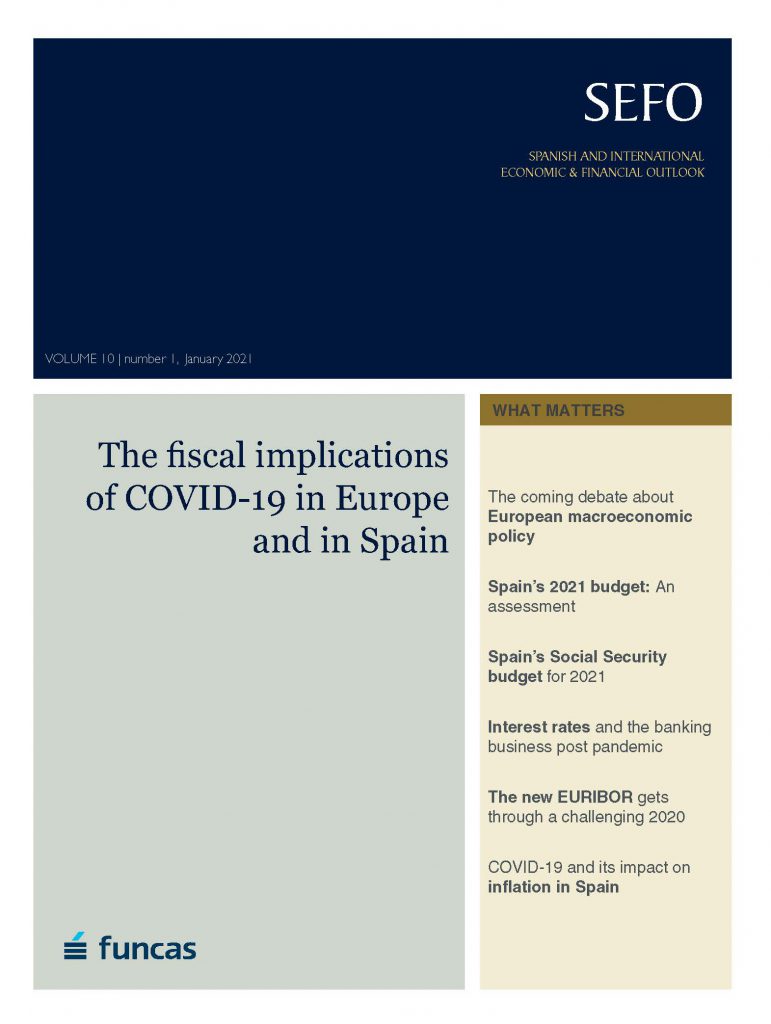The fiscal implications of COVID-19 in Europe and in Spain
Fecha: January 2021
SEFO, Spanish and International Economic & Financial Outlook, V. 10 N.º 1 (January 2021)
Index
[expand title= "The coming debate about European macroeconomic policy"]The debate over the deactivation of the ‘general escape clause’ highlights the tension between the need for active fiscal stimulus and fiscal sustainability. Given the damage wrought by COVID-19 and current debt levels in Southern Europe, the decision ultimately taken by the European Commission will be especially impactful on the region.
[/expand] [expand title= "Spain’s 2021 budget: An assessment"]The Spanish government’s 2021 budget is notable for its marked optimism regarding the country’s economic growth and revenue prospects, its ability to rein in public expenditure, and by extension, the country’s deficit and debt levels. Consensus forecasts are more downbeat, with lower growth estimates, higher deficit and debt levels, as well as doubts surrounding the economic impact on forecasted revenue growth and the Next Generation EU funds.
[/expand] [expand title= "Spain’s Social Security budget for 2021"]Expenditure and revenue outlays in the 2020 and 2021 Social Security budgets are highly impacted by both COVID-19 and regulatory changes. However, a consistent theme is the Social Security budget deficit, requiring decisive corrective measures to stabilise the pension system and overall Spanish public sector.
[/expand] [expand title= "Interest rates and the banking business post pandemic"]While central bank policies, such as ultra-low interest rates, have staved off liquidity crunches and episodes of heightened uncertainty, they have also distorted financial markets, reduced bank profitability, and potentially undermined the ability of central banks to meet their medium-term inflation targets. As the economy recovers and interest rates potentially rise, central banks will need to consider other actions that support the health of Europe’s banking sector.
[/expand] [expand title= "The new EURIBOR gets through a challenging 2020"]In the aftermath of the financial crisis, regulators proposed a new methodology for calculating EURIBOR. Despite the volatility wrought by COVID-19, this methodology performed well in 2020, reflecting expectations for benchmark rates and perceived bank credit risk and capturing the indirect effects of the dislocation sustained in the FX swap market.
[/expand] [expand title= "COVID-19 and its impact on inflation in Spain"]Although Spain recorded an inflation rate of -0.3% in 2020, the only clear-cut case of crisis induced deflation was in energy products, with subcategories in the services sector exhibiting both inflationary and disinflationary trends. Over the near-term, it is likely that inflation will bounce back due to rising vaccination rates, the lifting of social distancing measures, and a decrease in the historically high savings rate.
[/expand]
